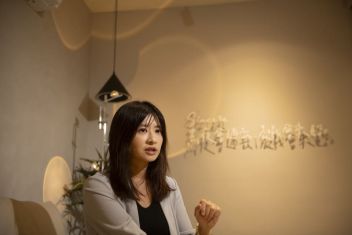
(Photos by Chen Mei-ling, Chin Hung-hao and Huang Chung-hsin)
Women forging careers in male-dominated professions share their experiences.
The traditional view of women as homemakers and men as breadwinners has faded in Taiwan over the past several decades owing to such factors as equal access to education, greater legal protections and evolving social values. Ministry of Labor statistics show that the female labor force participation rate—the proportion of working-age women in employment or looking for a job—rose from 45.6 percent in 1998 to 51.14 percent in 2018. The latest figure is equivalent to the 2017 average among Organization for Economic Cooperation and Development countries, according to the most recent estimates from the International Labor Organization.
Women now account for about 45 percent of Taiwan’s workforce, an increase of 5 percentage points from 20 years ago. Even so, many fields are still dominated by men like engineering, law enforcement and scientific research. In 2017, 71.98 percent of working women were in the service sector. During the same year, women comprised just 6 percent of the country’s registered architects, 233 out of a total 3,830, and 9 percent of police officers, 6,224 out of 63,926.
Fields remain male dominated for a variety of reasons including cultural expectations and gender stereotyping. Women who enter these sectors may earn lower salaries than male counterparts and face glass ceilings blocking them from higher-level positions. Taiwan’s gender pay gap, though narrowing, stood at 14 percent in 2017.
This issue of Taiwan Review features firsthand accounts from 18 women working in male-dominated areas. Some of these trailblazers have forged successful careers in disciplines like law and surgery. Others have qualified for elite combat and leadership positions that place equal requirements on male and female candidates, such as fighter pilot and firefighting squad leader. Their experiences highlight the progress that Taiwan has achieved as well as the work ahead in realizing gender equality.











